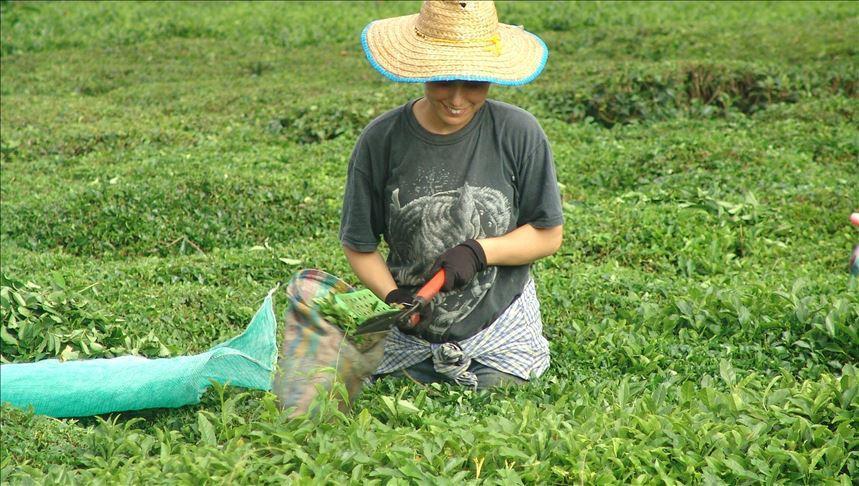
As restrictions due to the novel coronavirus prevent seasonal workers especially from Georgia from traveling to Turkey, this year tea producers in the region may well have to turn to their neighbors to help haul in the leaves.
“Farmers in the region will have to go back the old days and do their own work due to the coronavirus epidemic,” Mustafa Yılmaz Kar, secretary-general of the Trabzon-based Tea Industry and Business Association (CAYSIAD), told
Anadolu Agency.
Around 26,000 seasonal workers, especially from neighboring Georgia, are unable to travel to Turkey due to coronavirus restrictions as the borders have been closed since March.
As Turkey also imposed travel restrictions from province to province to stem the spread of the virus, farmers who own famed Black Sea tea fields but live in Turkey’s largest city Istanbul are also having trouble getting to their farms.
According to Kar, around 65% of the people working on tea production already arrived in the region: “They already fertilized their fields and will also pick the tea.”
But there are still farmers who live especially in Istanbul unable to make it to the Black Sea region yet due to travel limitations, he added.
“They couldn’t get permission but we believe they will get the necessary documents,” he said. “We expect that the permission will be given for those people.”
Waiting for travel permission
One of those farmers in Turkey's northeastern province of Rize, known as the tea capital of the country, is Fatma Batumoğlu, who told Anadolu Agency that she doesn’t know if her son living in Istanbul will be able to get permission to go to Rize to help with the harvest.
“We’ll do our best to do the harvest this year,” she said.
Batumoğlu said that Georgian workers have been harvesting her field for over a decade now.
Last year, a four-member family traveled across Turkey’s northeast border to help with the harvest.
“They picked a total of 16 tons of tea, and I paid them around 13,000 Turkish liras [$1,836] for the tea last May.”
But she added: “We spoke with the Georgians this year and they can’t come because the border is closed.”
In fact this year Batumoğlu is not very keen on seasonal workers coming as she fears the virus’ spread, but she urged the government to find a solution for tea farmers.
“I’m 77 and if I have to, I’ll go out into the field and pick the tea myself,” she said.
“In the past, my children knew how to pick tea but the new generation doesn’t, because in recent years it’s been Georgians who have harvested the produce,” she added.
Seasonal workers
Kar agreed with Batumoğlu, saying seasonal workers have indeed made locals a bit dependent and out of practice, but added that this does not mean that Turkey cannot overcome this hurdle.
Highlighting a ÇAYSİAD project that fell short, Kar said that they tried to open a 5,000-person employment project to teach tea picking inside Turkey to be ready for situations when Georgians might not be able to come.
“This was supposed to be our plan B, but we couldn’t manage it because we couldn’t find local workers,” he said.
Turkey earned over $3.8 million in tea revenues in the first three months of 2020 with exports to 75 countries, according to the Eastern Black Sea Exporters’ Association.
The country’s tea export revenue soared 51% in the first quarter compared to the same period last year, said the data released in April. Turkey exported over 1,000 tons of tea during this period.
According to Kar, renting fields to share earnings at the end of the harvest is a common tradition in the region, but it will not happen if the pickers are not allowed to come to the area.
The main problem for the region is that potential tea-pickers living in neighboring provinces will not be able to travel to the region due to travel restrictions.
“There are two to three weeks before the harvest begins, and we believe measures will be taken to prevent any problem,” he said.